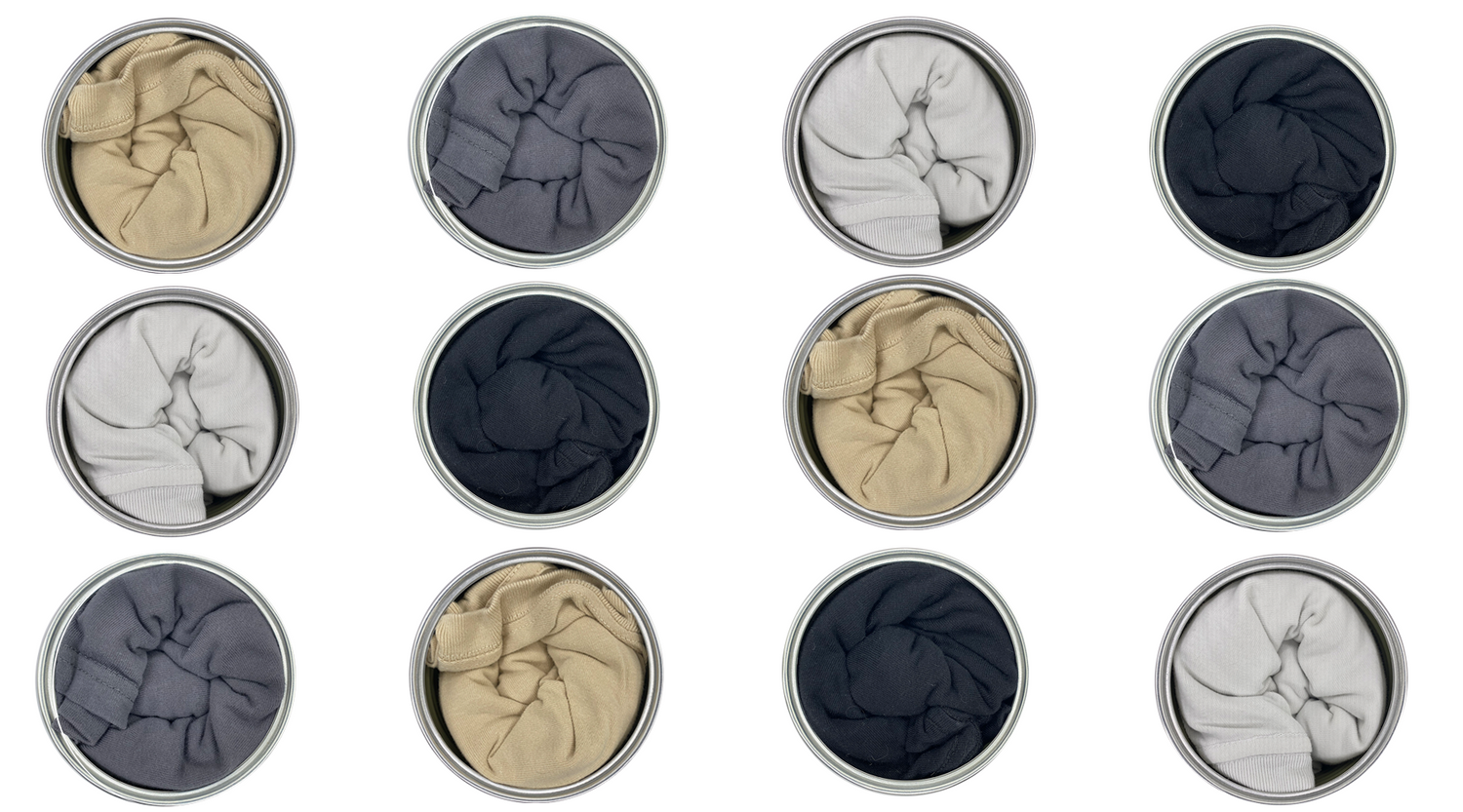Canned Goods has partnered with WILDCOAST and Open Water to bring attention to plastic waste and highlight the influence of the LEOPARD SHARK!
OPEN WATER
Founded in 2014 by Jess Page and Nicole Doucet, Open Water exists to make waves. With a goal to eliminate the single-use plastics that end up in our waterways and oceans, they’re doing just that as the most sustainable bottled water in the world.
Packaged exclusively in aluminum, Open Water’s bottles and cans are endlessly recyclable and the best option for you and the environment when drinking out of the tap isn’t one.
Open Water’s charitable mission is all about keeping our oceans blue and our planet green. They donate 1% of our gross revenue each year to support amazing organizations that are making waves in ocean conservation. From tackling plastic pollution and restoring ocean habitats to engaging young ocean warriors, they’re on a mission to protect and preserve our beautiful blue planet. Join them in saying bye bye, plastic!
Wildcoast
The international team at WILDCOAST is conserving coastal and marine ecosystems and addressing climate change through natural solutions. WILDCOAST protects over 38 million acres of some of the world’s most beautiful and ecologically important coasts and ocean environments like sea turtle nesting beaches, gray whale breeding lagoons, coral reefs, wetlands, mangrove forests, and California’s network of underwater parks.
California has taken steps to protect its iconic coast and ocean by creating the world’s largest network of marine protected areas (MPAs). San Diego County is home to 11 of these underwater parks, spanning 17,779 acres and home to a myriad of species like dolphins, sea lions, colorful fish, blue and gray whales, sharks, and more.
One of the most famous locals cruising the shores of San Diego County is the leopard shark. This small shark has a big presence, as every summer hundreds of pregnant females visit the tepid waters off the Matlahuayl State Marine Reserve in La Jolla Shores to speed up their gestation, creating a spectacular snorkeling experience for locals and visitors alike.
Leopard sharks:
- Average 4-7 feet in length, which is actually the average size for a shark!
- Are benthic feeders, meaning they eat off the ocean floor. Their mouths are located on the underside of their bodies making them the perfect predator for invertebrates such as shrimp, crabs, and octopus.
- Are mid-level predators, meaning they help maintain ecological balance through the regulation of prey populations while simultaneously serving as prey themselves for apex predators such as the great white shark.
- Are an indicator species, meaning that they are often the first sign of a shift in environmental conditions such as pollution levels, degradation, or changes in prey availability – making them an integral part of marine conservation efforts.
- Are relatively docile. Their calm nature, and the fact that their mouths are located on the underside of their bodies, make leopard shark bites very rare!...BUT…please remember these are wild animals so if you have the honor of seeing one in the wild, make sure to leave a respectable distance between you and the shark!
Most importantly, the leopard shark reminds us that despite sensationalist media, sharks play a crucial – and often gentle – role in their ecosystems, highlighting the importance of sharks as diverse, vital, and often misunderstood members of marine environments. Misunderstood and underrated, it is time to respect these locals and say “thank you” for all that they do for our ocean.
WILDCOAST is proud to partner with Canned Goods and Open Water to highlight the conservation of this important species. By protecting our ocean, WILDCOAST is creating safe haven for wildlife like the friendly leopard shark, so they can flourish for generations to come.
Grab your own canned leopard shark tee to help support our efforts or to support WILDCOAST’s ground level conservation efforts, donate here.



